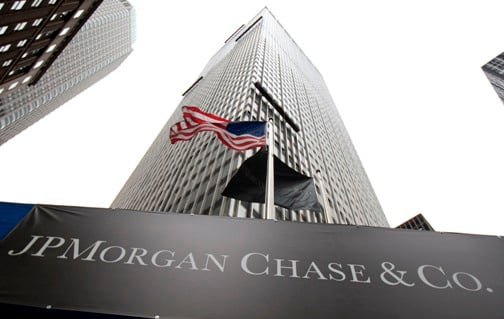Junk bonds are becoming more attractive compared with stocks as relative yields on the debt soar to a two-year high and a U.S. recession becomes likelier, according to JPMorgan Chase & Co.
“We believe investors should favor income producing investments,” analysts led by Peter Acciavatti, the top speculative-grade strategist in Institutional Investor magazine's annual poll, wrote in an Oct. 7 report. “High-yield bonds remain excellent substitutes for equities, providing similar returns historically with half the volatility.”
JPMorgan is joined by Barclays Capital and
BlackRock Inc. in recommending junk debt as global economic growth slows and European leaders struggle to protect the region's banks from a sovereign default. The neediest borrowers have strengthened their balance sheets and reduced the volume of debt coming due over the next few years, lowering the potential default rate in the case of a recession compared with previous downturns, according to JPMorgan.
“Performance looks very appealing on a horizon extending beyond one year, and high-yield bonds outperform equities over all time horizons,” the New York-based analysts wrote.
Strategy Shift
The extra yield investors demand to hold junk bonds rather than government debt soared last week to the highest level in more than two years, according to Bank of America Merrill Lynch index data. The index reached 910 basis points on Oct. 4, the highest level since September 2009, before declining to 855 as of the end of the week.
High-yield, high-risk bonds, graded below Baa3 by Moody's Investors Service and lower than BBB- by Standard & Poor's, have lost 8.2 percent since the end of July, the data show.
Morgan Stanley Smith Barney, which oversees $1.7 trillion, shifted its investment strategy to reduce the New York-based bank's exposure to riskier assets, including high-yield debt, it said in an Oct. 6 report. The move “is the most significant change to our tactical asset allocation in more than two years, as we are decisively moving to bearish from bullish,” wrote analysts led by Chief Investment Officer Jeff Applegate.
The chance of a U.S. recession has risen to about 40 percent from about one third in August, according to JPMorgan economists. Default rates among speculative-grade borrowers would rise to as much as 6 percent in the case of such an economic downturn, compared with up to 15 percent historically, the bank's analysts wrote.
Less Volatile
Speculative-grade notes are paying an average yield of 9.1 percent, compared with 5.1 percent for leveraged loans and a 2.3 percent dividend yield for the Standard & Poor's 500 Index, the report said. While junk-debt prices tend to swing in tandem with stock market moves, the notes are a less volatile investment over time because they provide coupon payments, according to the analysts.
High-yield bond spreads have crossed above 900 basis points, or 9 percentage points more than government debt five times in the market's history, JPMorgan said. The notes had a positive return within a year in each of those instances, in one case gaining 36.9 percent.
“With high-yield spreads above their long-term average, low default risk, and headline risk and the global economy still unpredictable, we believe investors should favor high-yield bonds paying a high current yield rather than an equity market dependent on sustained economic and earnings growth,” the analysts wrote.
--Bloomberg News--







